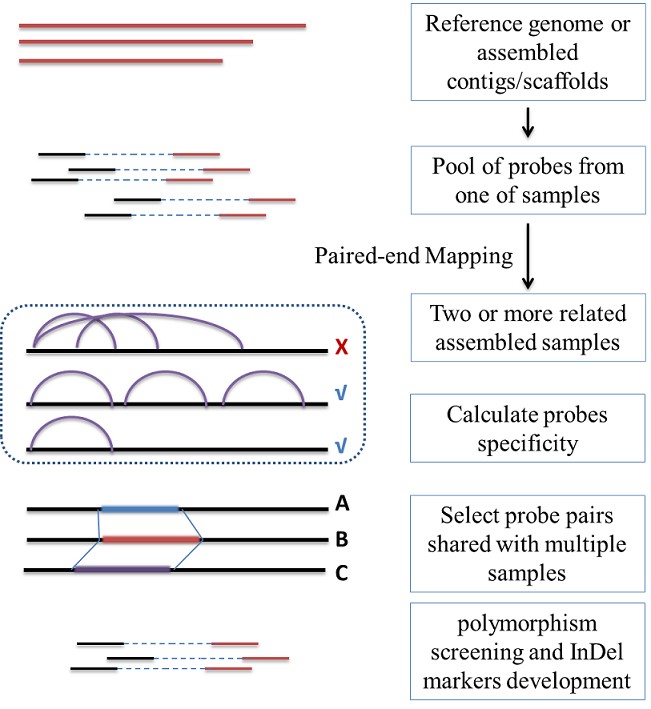Rich in genetic information and cost-effective to genotype, the Insertion-Deletion (InDel) molecular marker system is an important tool for studies in genetics, genomics and for marker-assisted breeding. Advent of next-generation sequencing (NGS) revolutionized the speed and throughput of sequence data generation, and enabled genome-wide identification of insertion and deletion variation. However, current NGS-based InDel mining tools, such as Samtools, GATK and Atlas2, all rely on a reference genome for variant calling which hinders their application on unsequenced organisms and the output of short InDels compromised their use on gel-based genotyping platforms. To address these issues, an enhanced platform is needed to identify longer InDels and develop markers in absence of a reference genome. Here we present mInDel (multiple InDel), a next-generation variant calling tool specifically designed for InDel marker discovery. By taking in raw sequence reads and assembling them into contigs de novo, this software identifies InDel polymorphisms using a sliding window alignment from assembled contigs, rendering a unique advantage when a reference genome is unavailable. By providing an option of combining multiple discovered InDels as output, mInDel is amiable to gel-based genotyping platforms where markers with large polymorphisms are preferred. We demonstrated the usability and performance of this software through a case study using a set of maize NGS data, and experimentally validated the accuracy of markers generated from mInDel. mInDel is a novel and practical tool that enables rapid genome-wide InDel marker discovery. The features of being independent from a reference genome and the flexibility with downstream genotyping platforms will allow a broad range of applications across genetics research and plant breeding.

Workflow of mInDel


